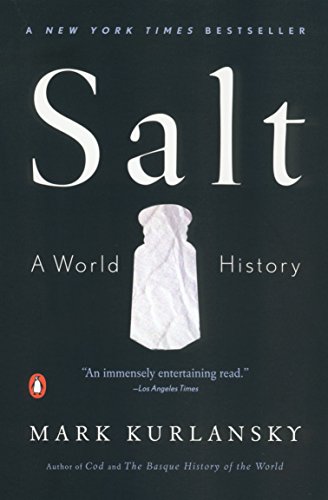When we think about setting aside emergency supplies, most of us would agree that preserved food and purified water are the essentials and everything else is secondary to these. Some might even choose to incorporate things like a manual grain mill, a water purifier, a food dehydrator, a solar cook stove and so on. But who would ever consider something as simple and humble as sea salt as an indispensable necessity and commodity in the tumultuous days ahead? I would even go so far as to say if sea salt is not a part of your survival provisions, it’s time to tuck away this invaluable, hidden treasure.
In fact, salt was once valued as a form of currency – it was that scarce, and considered a luxury of few. The ancient Greeks used salt to trade for slaves and Roman soldiers were paid in “salt money” or “salarium argentum” where we derive the English word, “salary”. Homer called it “Divine”. Jesus calls His followers (which I’m honored to say I am) the “salt of the earth”. Wars have been fought and whole settlements turned into cities and nations over the pursuit of salt. Just as gold and silver have once again gained ground in this present economic meltdown, so also will sea salt be a valuable and tradable commodity, literally “worth its weight in gold.” It will be a supreme bartering tool.
 Salt: A World History
Best Price: $2.50
Buy New $10.38
(as of 10:05 UTC - Details)
Salt: A World History
Best Price: $2.50
Buy New $10.38
(as of 10:05 UTC - Details)
Sea salt has a unique ability of drawing out the flavor in food like no other seasoning, but this is secondary to yet another one of its amazing values. Salt has long been known for its ability to preserve foods. If in the event of societal and economic collapse, refrigeration may be a thing of the past. Unless you plan to consume what you pick immediately, depend on your air dehydrator or live off your food storage, you will need salt for preserving food. During harvest time, there should be plenty of fresh food (assuming you thought ahead to plant a garden), but the long harsh winters will inevitably come and preserving food will be a crucial issue. Even hunting for game, chances are you will not be able to consume it all in one sitting – salt preservation will be key. And without power, your pressure canner or electric dehydrator will not get you very far, so salt can be the perfect alternate route.
 Fine Ground Celtic Sea...
Buy New $9.17
(as of 10:30 UTC - Details)
Fine Ground Celtic Sea...
Buy New $9.17
(as of 10:30 UTC - Details)
With salt’s same ability to retard spoilage, “mineral dense sea salt” will also aid in the disinfecting and healing of wounds. A simple salt paste or soaking a wound in a salt/water solution several times a day, should achieve positive results. Sea salt also rejuvenates the skin keeping a more youthful appearance while aiding in the healing of acne, psoriasis, eczema and other skin related problems. Did you ever wonder why your skin felt so tight, free and clear of irritation or blemishes after spending a day at the beach? Sea salt has miracle healing properties that are often overlooked. In fact, the Blue Lagoon in Iceland is world renown for its hot salt springs that people flock to with skin conditions. Dead Sea salts are another sought- after skin commodity.
But might I be quick to add that not just any salt will suffice when it comes to you and your precious loved ones, especially typical table salt (sodium chloride) and in some cases, certain brands of sea salt. Salt that is processed for vast human consumption while meeting the public’s demand for a product that is cheap and convenient, much is also sacrificed. According to Jacques De Langre, the author of the book Seasalt’s Hidden Powers, table salt has been stripped of all but two of its 84 trace minerals through a chemical process, dried at extreme temperatures, and oftentimes – for the sake of appearance – anti-caking, free-flowing, or conditioning agents are added along with iodine. But buyer beware of even some brands of so-called sea salt: It may be mechanically harvested from dirt or concrete basins and piped through metal conduits; artificially processed; heated to extreme temperatures to break the molecular structure; stripped of its essential minerals and further adulterated by chemical additives. In essence, many highly acclaimed “sea salts” are no different than plain ole table salt.
June 2, 2010





